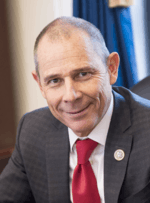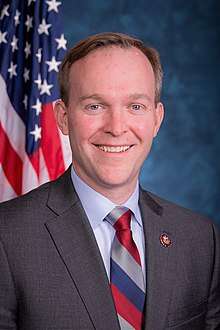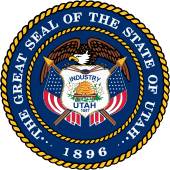United States congressional delegations from Utah
Since Utah became a U.S. state in 1896, it has sent congressional delegations to the United States Senate and United States House of Representatives. Each state elects two senators to serve for six years. Before the Seventeenth Amendment in 1913, senators were elected by the Utah State Legislature. Members of the House of Representatives are elected to two-year terms, one from each of Utah's four congressional districts. Before becoming a state, the Territory of Utah elected a non-voting delegate at-large to Congress from 1850 to 1896.
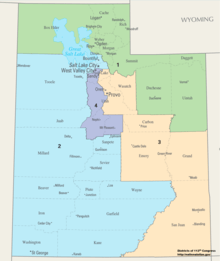
57 people have served either the Territory or State of Utah: 14 in the Senate, 41 in the House, and 2 in both houses. The average term for senators has been 15.3 years and the average term for representatives has been 6.7 years. The longest-serving senator was Orrin Hatch, from 1977 to 2019. The longest-serving representative is James V. Hansen, in office for 22 years from 1981 to 2003. No Utah women have served in the Senate, but four women - Reva Beck Bosone, Karen Shepherd, Enid Greene and Mia Love - have been Representatives.
In 2013, following the 2010 United States Census, a 4th district was added. A new congressional redistricting map was approved by the Republican legislature and signed into law by Republican Governor Gary Herbert.[1][2]
Senate
Each state elects two senators by statewide popular vote every six years. The terms of the two senators are staggered so that they are not elected in the same year. Utah's senators are elected in the years from classes 1 and 3. Senators were originally chosen by the Utah House of Representatives until the Seventeenth Amendment came into force in 1913.[3][4]
There have been seventeen senators elected from Utah, of whom five have been Democrats and twelve have been Republicans. Utah's current senators are Republicans Mike Lee, in office since 2011, and Mitt Romney, in office since 2019. Lee was elected in 2016 with 68% of the vote.[5], and Romney was elected in 2018 with 63% of the vote.
Democratic (D) Republican (R)
| Class 1 senators | Congress | Class 3 senators | ||
|---|---|---|---|---|
| Frank J. Cannon (R) | 54th (1895–1897) | Arthur Brown (R) | ||
| 55th (1897–1899) | Joseph L. Rawlins (D) | |||
| Vacant [note 1] |
56th (1899–1901) | |||
| Thomas Kearns (R) [note 2] |
||||
| 57th (1901–1903) | ||||
| 58th (1903–1905) | Reed Smoot (R) [note 3] | |||
| George Sutherland (R) | 59th (1905–1907) | |||
| 60th (1907–1909) | ||||
| 61st (1909–1911) | ||||
| 62nd (1911–1913) | ||||
| 63rd (1913–1915) | ||||
| 64th (1915–1917) | ||||
| William H. King (D) | 65th (1917–1919) | |||
| 66th (1919–1921) | ||||
| 67th (1921–1923) | ||||
| 68th (1923–1925) | ||||
| 69th (1925–1927) | ||||
| 70th (1927–1929) | ||||
| 71st (1929–1931) | ||||
| 72nd (1931–1933) | ||||
| 73rd (1933–1935) | Elbert D. Thomas (D) | |||
| 74th (1935–1937) | ||||
| 75th (1937–1939) | ||||
| 76th (1939–1941) | ||||
| Abe Murdock (D) | 77th (1941–1943) | |||
| 78th (1943–1945) | ||||
| 79th (1945–1947) | ||||
| Arthur V. Watkins (R) | 80th (1947–1949) | |||
| 81st (1949–1951) | ||||
| 82nd (1951–1953) | Wallace F. Bennett (R) [note 4] | |||
| 83rd (1953–1955) | ||||
| 84th (1955–1957) | ||||
| 85th (1957–1959) | ||||
| Frank Moss (D) | 86th (1959–1961) | |||
| 87th (1961–1963) | ||||
| 88th (1963–1965) | ||||
| 89th (1965–1967) | ||||
| 90th (1967–1969) | ||||
| 91st (1969–1971) | ||||
| 92nd (1971–1973) | ||||
| 93rd (1973–1975) | ||||
| Jake Garn (R) | ||||
| 94th (1975–1977) | ||||
| Orrin Hatch (R) | 95th (1977–1979) | |||
| 96th (1979–1981) | ||||
| 97th (1981–1983) | ||||
| 98th (1983–1985) | ||||
| 99th (1985–1987) | ||||
| 100th (1987–1989) | ||||
| 101st (1989–1991) | ||||
| 102nd (1991–1993) | ||||
| 103rd (1993–1995) | Robert Bennett (R) | |||
| 104th (1995–1997) | ||||
| 105th (1997–1999) | ||||
| 106th (1999–2001) | ||||
| 107th (2001–2003) | ||||
| 108th (2003–2005) | ||||
| 109th (2005–2007) | ||||
| 110th (2007–2009) | ||||
| 111th (2009–2011) | ||||
| 112th (2011–2013) | Mike Lee (R) | |||
| 113th (2013–2015) | ||||
| 114th (2015–2017) | ||||
| 115th (2017–2019) | ||||
| Mitt Romney (R) | 116th (2019–2021) | |||
House of Representatives
Delegates from Utah Territory
The Territory of Utah was an organized incorporated territory of the United States formed on September 9, 1850. The territory initially consisted of present-day Utah, most of Nevada, and portions of Colorado and Wyoming. On February 28, 1861, the creation of Colorado Territory took land from the eastern side of Utah Territory. Nevada Territory was organized from the western section of Utah Territory on March 2, 1861.[10] Also on that date, Nebraska Territory gained area from the northeastern part of Utah Territory. Nevada Territory gained area from Utah Territory on July 14, 1862, and again on May 5, 1866, after becoming a state. Wyoming Territory was created on July 25, 1868, from Nebraska Territory, taking more area from the northeast corner and giving Utah Territory its final borders.
The territorial delegates were elected to two-year terms. Delegates were allowed to serve on committees, debate, and submit legislation, but were not permitted to vote on bills.[11] Delegates only served in the House of Representatives as there was no representation in the Senate until Utah became a state.
Democratic (D) Independent (Ind.) Populist (Pop.) Republican (R)
| Congress | Delegate | |
|---|---|---|
| 32nd (1851–1853) |
John M. Bernhisel (Ind.) | |
| 33rd (1853–1855) | ||
| 34th (1855–1857) | ||
| 35th (1857–1859) | ||
| 36th (1859–1861) |
William H. Hooper (D) | |
| 37th (1861–1863) |
John M. Bernhisel (Ind.) | |
| 38th (1863–1865) |
John F. Kinney (D) | |
| 39th (1865–1867) |
William H. Hooper (D) | |
| 40th (1867–1869) | ||
| 41st (1869–1871) | ||
| 42nd (1871–1873) | ||
| 43rd (1873–1875) |
George Q. Cannon (R) | |
| 44th (1875–1877) | ||
| 45th (1877–1879) | ||
| 46th (1879–1881) | ||
| 47th (1881–1883) |
George Q. Cannon (R) [note 5] | |
| John T. Caine (D) [note 6] | ||
| John T. Caine (D) | ||
| 48th (1883–1885) | ||
| 49th (1885–1887) | ||
| 50th (1887–1889) | ||
| 51st (1889–1891) |
John T. Caine (Pop.) | |
| 52nd (1891–1893) | ||
| 53rd (1893–1895) |
Joseph L. Rawlins (D) | |
| 54th (1895–1897) |
Frank J. Cannon (R) | |
Representatives from the State of Utah
Members of the House of Representatives are elected every two years by popular vote within a congressional district.[15] From 1895 till 1913, Utah had an at-large congressional district that represented the entire state. Every ten years, the number of congressional districts is reapportioned based on the state's population as determined by the United States Census;[16] Utah has had four districts since 2013.
| Congress | Districts | |||||||
|---|---|---|---|---|---|---|---|---|
| At-large from 1893–1913 1st from 1913–current |
2nd | 3rd | 4th | |||||
| 54th (1895–1897) |
Clarence Emir Allen (R) | |||||||
| 55th (1897–1899) |
William H. King (D) | |||||||
| 56th (1899–1901) |
Brigham H. Roberts (D) [note 7] | |||||||
| William H. King (D) [note 8] | ||||||||
| 57th (1901–1903) |
George Sutherland (R) | |||||||
| 58th (1903–1905) |
Joseph Howell (R) | |||||||
| 59th (1905–1907) | ||||||||
| 60th (1907–1909) | ||||||||
| 61st (1909–1911) | ||||||||
| 62nd (1911–1913) | ||||||||
| 63rd (1913–1915) |
Jacob Johnson (R) | |||||||
| 64th (1915–1917) |
James Henry Mays (D) | |||||||
| 65th (1917–1919) |
Milton H. Welling (D) | |||||||
| 66th (1919–1921) | ||||||||
| 67th (1921–1923) |
Don B. Colton (R) | Elmer O. Leatherwood (R) [note 9] | ||||||
| 68th (1923–1925) | ||||||||
| 69th (1925–1927) | ||||||||
| 70th (1927–1929) | ||||||||
| 71st (1929–1931) | ||||||||
| 72nd (1931–1933) |
Frederick C. Loofbourow (R) | |||||||
| 73rd (1933–1935) |
Abe Murdock (D) | J. W. Robinson (D) | ||||||
| 74th (1935–1937) | ||||||||
| 75th (1937–1939) | ||||||||
| 76th (1939–1941) | ||||||||
| 77th (1941–1943) |
Walter K. Granger (D) | |||||||
| 78th (1943–1945) | ||||||||
| 79th (1945–1947) | ||||||||
| 80th (1947–1949) |
William A. Dawson (R) | |||||||
| 81st (1949–1951) |
Reva B. Bosone (D) | |||||||
| 82nd (1951–1953) | ||||||||
| 83rd (1953–1955) |
Douglas R. Stringfellow (R) | William A. Dawson (R) | ||||||
| 84th (1955–1957) |
Henry A. Dixon (R) | |||||||
| 85th (1957–1959) | ||||||||
| 86th (1959–1961) |
David S. King (D) | |||||||
| 87th (1961–1963) |
M. Blaine Peterson (D) | |||||||
| 88th (1963–1965) |
Laurence J. Burton (R) | Sherman P. Lloyd (R) | ||||||
| 89th (1965–1967) |
David S. King (D) | |||||||
| 90th (1967–1969) |
Sherman P. Lloyd (R) | |||||||
| 91st (1969–1971) | ||||||||
| 92nd (1971–1973) |
K. Gunn McKay (D) | |||||||
| 93rd (1973–1975) |
Wayne Owens (D) | |||||||
| 94th (1975–1977) |
Allan Turner Howe (D) | |||||||
| 95th (1977–1979) |
David D. Marriott (R) | |||||||
| 96th (1979–1981) | ||||||||
| 97th (1981–1983) |
James V. Hansen (R) | |||||||
| 98th (1983–1985) |
Howard C. Nielson (R) | |||||||
| 99th (1985–1987) |
David S. Monson (R) | |||||||
| 100th (1987–1989) |
Wayne Owens (D) | |||||||
| 101st (1989–1991) | ||||||||
| 102nd (1991–1993) |
Bill Orton (D) | |||||||
| 103rd (1993–1995) |
Karen Shepherd (D) | |||||||
| 104th (1995–1997) |
Enid Greene (R) | |||||||
| 105th (1997–1999) |
Merrill Cook (R) | Chris Cannon (R) | ||||||
| 106th (1999–2001) | ||||||||
| 107th (2001–2003) |
Jim Matheson (D) | |||||||
| 108th (2003–2005) |
Rob Bishop (R) | |||||||
| 109th (2005–2007) | ||||||||
| 110th (2007–2009) | ||||||||
| 111th (2009–2011) |
Jason Chaffetz (R) | |||||||
| 112th (2011–2013) | ||||||||
| 113th (2013–2015) |
Chris Stewart (R) | Jim Matheson (D) | ||||||
| 114th (2015–2017) |
Mia Love (R) | |||||||
| 115th (2017–2019) | ||||||||
| John Curtis (R) | ||||||||
| 116th (2019–2021) |
Ben McAdams (D) | |||||||
| Congress | 1st | 2nd | 3rd | 4th | ||||
| Districts | ||||||||
Living former Members of the House and Senate
Living former Members of the U.S. House of Representatives
As of January 2019, there are nine living former members of the U.S. House of Representatives.
| Representative | Term of office | District | Date of birth (and age) |
|---|---|---|---|
| David Daniel Marriott | 1977–1985 | 2nd | November 2, 1939 |
| Howard C. Nielson | 1983–1991 | 3rd | September 12, 1924 |
| David S. Monson | 1985–1987 | 2nd | June 20, 1945 |
| Karen Shepherd | 1993–1995 | 2nd | July 5, 1940 |
| Enid Greene | 1995–1997 | 2nd | June 5, 1958 |
| Chris Cannon | 1997–2009 | 3rd | October 20, 1950 |
| Jim Matheson | 2001–2015 | 2nd (2001–2013) 4th (2013–2015) |
March 21, 1960 |
| Jason Chaffetz | 2009–2017 | 3rd | March 26, 1967 |
| Mia Love | 2015–2019 | 4th | December 6, 1975 |
Living former senators
As of January 2019, there are two living former senators.
| Senator | Term of office | Date of birth (and age) |
|---|---|---|
| Jake Garn | 1974–1993 | October 12, 1932 |
| Orrin Hatch | 1977–2019 | March 22, 1934 |
Notes
- Seat was vacant due to Utah Legislature's failure to elect a senator.[6]
- Kearns served the four years remaining in the term beginning in 1899.[7]
- Smoot, a monogamist, was seated in 1904, but was on trial in the Senate until 1907 to see if any Mormon could hold political office.[8]
- Wallace Bennett was not a candidate for re-election in 1974, and resigned early, presumably to allow his successor to gain seniority over others elected in 1974.[9]
- George Q. Cannon won the election, but the governor appointed Allen G. Campbell. Cannon successfully contested the election, but the House decided not to seat Cannon on grounds that Cannon was a polygamist.[12][13]
- Elected to fill the vacancy created when the House refused to seat George Q. Cannon[14]
- The House refused to seat Brigham H. Roberts on grounds that he was a polygamist.[17]
- Elected to fill the seat vacated by Brigham Roberts[18]
- Representative Leatherwood died while in office.[19]
References
- General
- "Biographical Directory of the United States Congress 1774–2005". United States Government Printing Office. Archived from the original on June 1, 2006. Retrieved May 2, 2010.
- "Members of Congress: Utah". Infoplease. Pearson Education. Retrieved May 2, 2010.
- "U.S. Senators from Utah". United States Senate. Retrieved May 2, 2010.
- Constitution
- "The Constitution of the United States of America". Cornell University Law School. Retrieved May 13, 2010.
- Specific
- "Governor OKs new Utah congressional maps". Salt Lake Tribune. October 20, 2011. p. 1.
- "Archived copy". Archived from the original on December 28, 2011. Retrieved December 28, 2011.CS1 maint: archived copy as title (link)
- U.S. Const. Art. I, § 3
- U.S. Const. Amendment XVII
- "Utah Election Official Results" (PDF). Utah Secretary of State. Retrieved December 28, 2016.
- "Utah Fails to Elect Senator". Boston Evening Transcript. March 10, 1899. Retrieved April 30, 2010.
- "Kearns, Thomas". Biographical Directory of the United States Congress. Clerk of the United States House of Representatives and Historian of the United States Senate. Retrieved July 28, 2010.
- Stack, Peggy Fletcher (April 3, 2004). "LDS leader guided church's evolution from 'menace' to mainstream". The Salt Lake Tribune. Archived from the original on June 24, 2004.
- "Why Bennett-Garn switch is the wrong way to retire". Deseret News. Salt Lake City. December 19, 1974. Retrieved May 4, 2010.
- Davis, Sam P., ed. (1912). The History of Nevada. Reno: Elms Publishers. p. 192. Archived from the original on November 13, 2006. Retrieved May 14, 2010.
- "Delegates to the U.S. Congress: History and Current Status" (PDF). Congressional Research Service. Retrieved January 17, 2011.
- "How the Plot Was Spoiled". Deseret News. Salt Lake City. July 6, 1881. Retrieved May 4, 2010.
- "The Polygamous Delegate". Lewiston Evening Journal. April 20, 1882. Retrieved May 4, 2010.
- "Favorable Report on the Utah Delegate". Deseret News. Salt Lake City. December 21, 1882. Retrieved May 4, 2010.
- U.S. Const. Art. I, § 2
- "Decennial Census". American FactFinder. Archived from the original on June 11, 2010. Retrieved May 13, 2010.
- "House Votes to Oust Roberts". Chicago Tribune. January 26, 1900. Retrieved May 4, 2010.
- "Judge King Sworn in Today". Deseret News. Salt Lake City. April 27, 1900. Retrieved May 4, 2010.
- "Leatherwood, Elmer, O." Biographical Directory of the United States Congress. Clerk of the United States House of Representatives and Historian of the United States Senate. Retrieved July 28, 2010.
External links
| Wikimedia Commons has media related to |
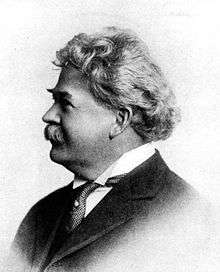
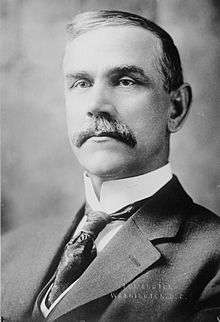
.jpg)
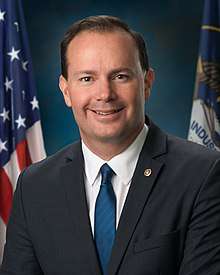
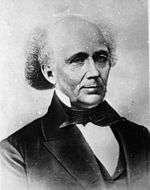

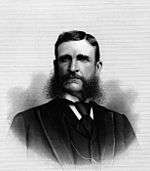

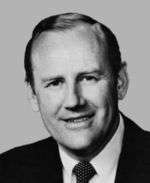
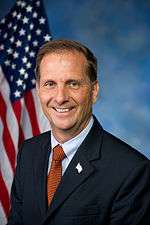

.jpg)
